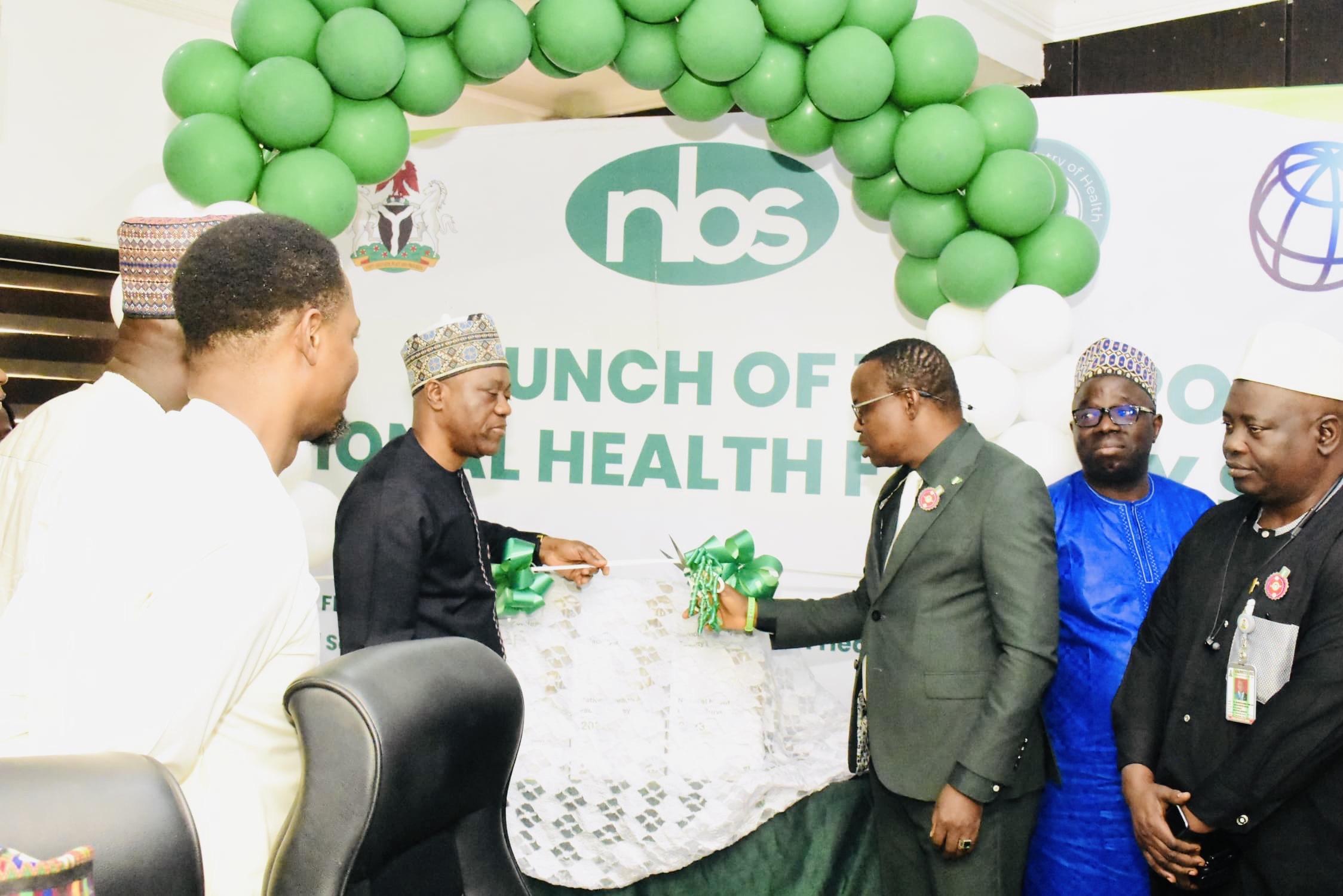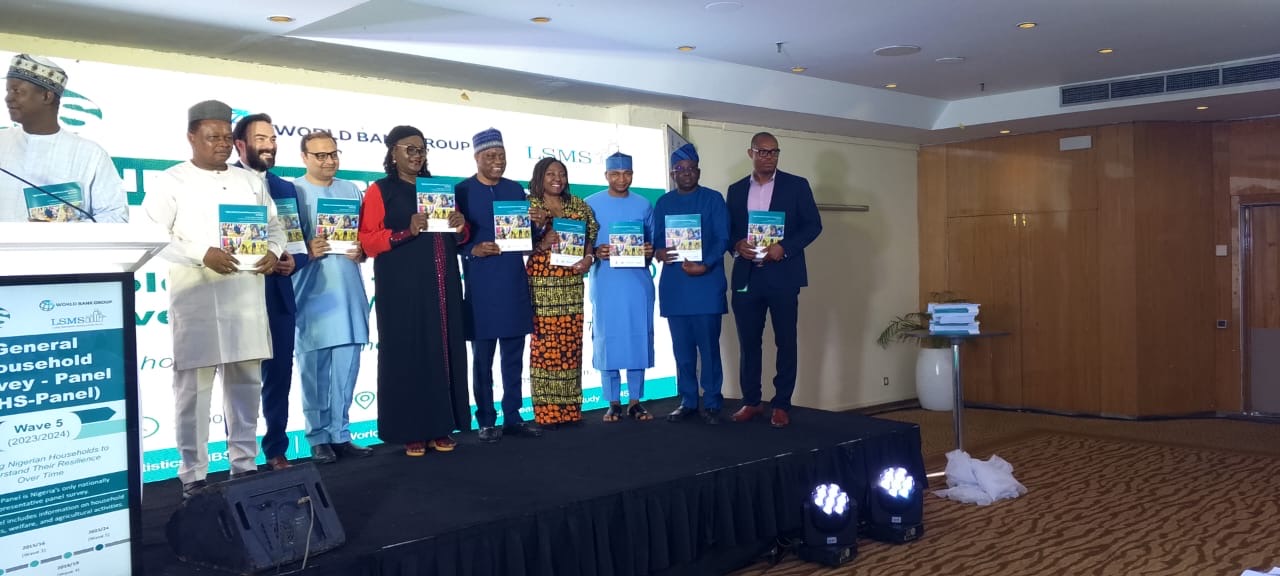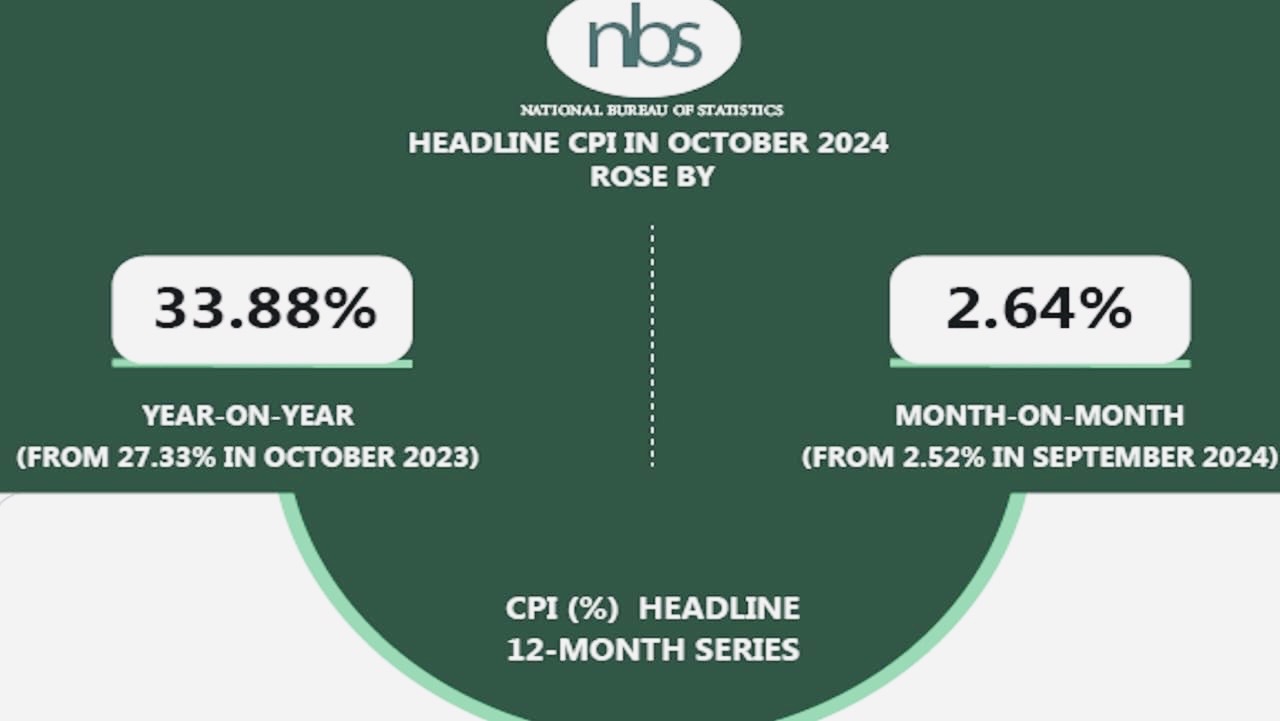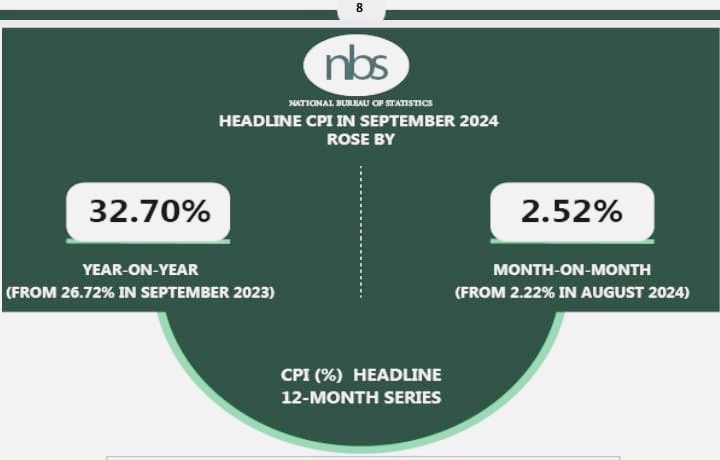Nigeria’s GDP improves by 3.84% in Q4 2024
By Okeoghene Akubuike
The National Bureau of Statistics (NBS) says Nigeria’s Gross Domestic Product (GDP) rate in real terms grew by 3.84 per cent in the fourth quarter of 2024 on a year-on-year basis.
The Statistician-General (S-G) of the Federation, Adeyemi Adeniran, released Nigeria’s GDP Report for Q4 2024 in Abuja on Tuesday.
Adeniran said the growth rate was 0.38 per cent points higher than the 3.46 per cent recorded in the fourth quarter of 2023.
“Similarly, it was higher by 0.38 per cent basic points relative to a similar growth rate of 3.46 per cent recorded in the third quarter of 2024.
“This reflected a higher economic improvement when compared to Q3 2024.”
The S-G said the performance of the GDP in Q4 2024 was still driven mainly by the services sector, which recorded a growth of 5.37 per cent and contributed 57.38 per cent to the aggregate GDP.
Adeniran said on a quarter-on-quarter basis, the real GDP grew by 10.99 per cent in Q4 2024, which indicated a higher production level than in Q3 2024.
He said the estimated economic activity in real terms for Q4 2024 stood at N22,610,393.45 million.
Adeniran said this was higher than the rates recorded in Q3 2024 and Q4 2023 which stood at N20,115,766.93 million and N21,773,263.25 million, respectively.
He said this also highlighted the improvement in the economy in Q4 2024 compared to Q3 2024 and Q4 2023.
The S-G said overall, the year 2024 ended with an overall annual GDP growth rate of 3.40 per cent relative to 2.47 per cent recorded in 2023.
“Thus, there was a decline in the performance of the Agriculture and Industry sector in 2024 relative to 2023, while the performance of the Services sector improved in 2024,” he said.
Adeniran said in nominal terms, which refers to the current price, aggregate GDP stood at N78,374,120.95 million in Q4 2024, which indicated a year-on-year nominal growth rate of 18.91 per cent.
He said this was higher than the N65,908,258.59 million recorded in Q4 2023 and the N71,131,091.07 million in Q3 2024.
Adeniran said the major contributing economic activities in real terms in Q4 2024 were Crop Production at 23.42 per cent, Trade at 15.11 per cent, and Telecommunication at 14.40 per cent.
Real Estate at 5.88 per cent, Financial Institutions at 5.76 per cent, and Crude Petroleum at 4.60 per cent.
On a broad classification of the economic activities into Agriculture, Industry, and Services sectors based on growth, he said the Agricultural Sector grew by 1.76 per cent and Industry grew by 2.00 per cent.
The S-G said this showed a decline compared to the rate recorded in Q4 2023 at 2.10 per cent for the Agricultural sector and 3.86 per cent for the Industry sector.
On the other hand, he said the Services sector recorded a 5.37 per cent increase in growth rate compared to the 3.98 per cent recorded in Q4 2023.
Giving a breakdown of sectoral contributions to the GDP in Q4 2024, Adeniran said Agriculture contributed 25.59 per cent, Industry 17.03 per cent, and Services 57.38 per cent.
He said the Agriculture and Industry sectors’ contributions were less than their contributions in Q4 of 2023 by 0.53 per cent and 0.31 basis points.
Adeniran said the Services sector had the highest contribution to the GDP in Q4 2024, surpassing its contribution in Q4 2023 by 0.83 per cent basis points.
He said the annual contributions of the economic sector showed that Agriculture contributed 24.64 per cent in 2024, which was lower compared to its contributions of 25.18 per cent recorded in 2023.
Similarly, the Industry sector’s annual contribution was 18.47 per cent in Q4 2024, which was also lower than the 18.65 per cent recorded in 2023.
However, he said the Services sector contributions for 2024 were 56.89 per cent which exceeded the 56.18 per cent recorded in 2023.
The S-G said the Oil sector witnessed a growth rate of 1.48 per cent in Q4 2024.
He said this indicated a decline compared to the 12.11 per cent recorded in Q4 2023, and the 5.17 per cent in Q3 2024.
Adeniran said the Oil sector accounted for 4.60 per cent of the GDP in Q4 2024.
He said the annual Oil GDP for 2024 grew by 5.54 per cent, which was 7.75 per cent higher than the annual GDP recorded for 2023 at -2.22 per cent.
Adeniran said the annual contribution of Oil stood at 5.51 per cent in 2024 which was higher than its contribution in Q4 2023 at 5.40 per cent.
He said Q4 2024 recorded an average daily oil production of 1.54 million barrels per day (mbpd), which was lower than the daily average production of 1.56 mbpd recorded in Q4 2023 by 0.03 mbpd.
“On the contrary, the production volume for Q4 2024 was higher than Q3 2024 which recorded 1.47 mbpd by 0.06 mbpd.”
He said the non-oil sector contributed 95.40 per cent to the GDP in Q4 2024 in real terms.
“This shows an increase on a year-on-year basis when compared to Q4 2023 which recorded a contribution of 95.30 per cent.
“Similarly, the non-oil sector’s contribution in Q4 2024 exceeds the 94.43 per cent recorded in Q3 2024.”
Adeniran said the economic performance of the non-oil sector in Q4 2024 was attributed to the growth recorded in some economic activities, including Rail Transport & Pipelines, Metal Ores, Financial Institutions, Road Transport, Quarrying & Other Minerals, and Insurance.
He said on an annual basis, the non-oil grew by 3.27 per cent in 2024, which was higher than the 3.04 per cent recorded in 2023.
“While in terms of aggregate contributions, the non-oil sector contributed 94.49 per cent in 2024, which was lower than the 94.60 per cent recorded in 2023,” he said. (NAN)(www.nannews.ng)
Edited by Abiemwense Moru







 Prof. Muhammad Pate, Coordinating Minister of the Federal Ministry of Health and Social Welfare, described the event as a pivotal moment for the country’s health sector.
Prof. Muhammad Pate, Coordinating Minister of the Federal Ministry of Health and Social Welfare, described the event as a pivotal moment for the country’s health sector.




